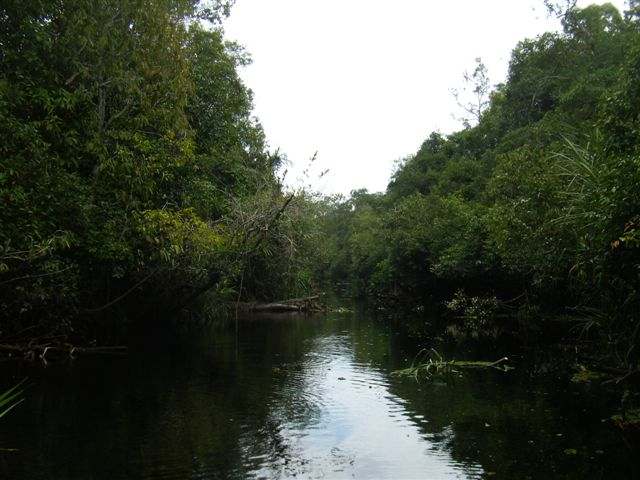I am afraid orangutans won’t feature in this post. Unfortunately, I am writing about something rather sombre. On the 31st December a local man was killed and eaten by a large crocodile. A group of people went out the same night to look for the man and the crocodile but found neither. The next day they called on a pawang or shaman who has the ability to call crocodiles. He worked his magic and within 17 hours of the attack the crocodile was caught and killed; it was almost 5m long and must have been over 50 years old. Inside were the remains of the man.
The Malaysian False Gharial (Tomistoma schlegeli) that killed and ate a local man.
What makes this interesting, as well as tragic, is the crocodile was a Malaysian False Gharial (Tomistoma schlegeli). You may remember last year (A VERY RARE CROCODILE), Rene Bonke was out here studying them. They are one of the crocodile species never reported to have attacked people. Because of this, we need to write up the case. Devis, Pondok Ambung Manager, has been leading the investigation and yesterday we went out to look at the site where the attack occurred.
It isn't surprising Tomistoma kill people. What surprised me was the river where the attack happened. It was an ordinary, peaceful, black-water creek, not 15 minutes upstream from town. It was identical to literally dozens of such rivers that I have seen, been up, even waded across. Never once did it occur to me that such a large Tomistoma might live there. They are an endangered species and you rarely see them.
Being in that place, where I knew someone had died, gave me pause. But behind that was a wonder; a wonder that in this era of chainsaws, speedboats and wanton habitat destruction, an animal of such size could have survived for so long.
For more information about Tomistoma please visit Tomistoma Task Force






